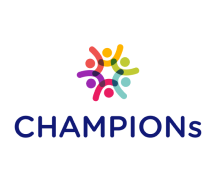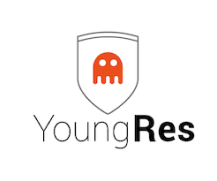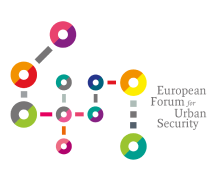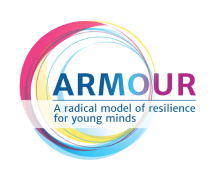 These projects were funded by the European Union`s Internal Security Fund – Police
These projects were funded by the European Union`s Internal Security Fund – Police
European Conference on
Preventing Polarization & Violent Radicalization:
Strengthening Resilience, Fostering Innovation, Consolidating Lessons & Pioneering New Frontiers
#EUPrevent
April 26th– April 29th – Online
Click here to see the full timetable or download the programme as PDF
For late registrations, please contact us at: euprevent2021@projectchampions.eu
Primary Language: English
Day 1: Simultaneous Interpretations into French, Spanish, German and Italian
Day 4: Simultaneous Interpretations into French, Spanish and German

You can re-watch the panel discussions on our YouTube Channel
Browse through conference presentations and project videos

LEAD ORGANIZERS
6 ISF-P European Commission funded projects
In addition to the ‘Lead Organizers’ responsible for technical and administrative preparation of the conference, more than 30 Universities, Institutions, Organisations and Agencies are so far partners of the conference.
DAY 1 – April 26
15:00 – 18:00 CET
TIME (CET)
Opening Session
Description
Speaker
15:00 – 15:10
Welcome & Introduction to the 2021 European Conference on Preventing Polarisation & Violent Radicalisation
Welcome to the 2021 European Conference on Preventing Polarisation & Violent Radicalisation – #EUPrevent. Bringing together the forefront of the field, with policy makers, practitioners and academics and exploring key areas in addressing, preventing and countering violent extremism, EUPrevent will focus on practical tools, lessons learnt, understanding key dynamics and strengthening good practices.
Moderator: Inmaculada Marrero (FUNDEA)
15:10 – 15:30
Preventing and Countering Violent Radicalisation in Europe – Vision & Policy Priorities from the European Commission
Sylvia Bottarin (DG HOME, European Commission)
European Panel 1
15:30 – 16:10
Understanding the Challenges in Europe Today:
The Scope and Dynamics of Radicalisation and Extremism in Europe
Moussa al-Hassan Diaw (Derad EU, Austria)
Prof. Dr. Beate Küpper (Hochschule Niederrhein)
Florian Huber (SYNYO) (Moderator)
16:10 – 16:40
Practitioners & Policy Makers Discussion and Input
European Panel 2
16:40 – 17:20
Meeting the Challenges of Extremism in Europe Today:
Lessons of the Last Decade, Opportunities to Intervene & The Road Ahead
Luca Gervasoni Vila (NOVACT)
Kai Brand Jacobsen (PATRIR)
Moderator: Núria Millán Iniesta (NOVACT, RaP)
17:20 – 17:40
Practitioners & Policy Makers Discussion and Input
Moderator: TBA
17:40 – 18:00
Consolidation of Discussions & Highlighting Key Lessons: Day 1
DAY 2 – April 27
10:00 – 12:00 CET, parallel sessions
Workshops
Abstract
Organizer
Speaker/moderator
No.1
Engaging Youth I:
Combining game-based learning and prevention work on social cohesion and equality
*Fully booked. Registration for this workshop is closed.
The need for new formats of prevention work against radicalization preceded the Covid-19 pandemic. The use of digital approaches in engaging with young people on issues of identity, discrimination, group hatred, violence and the role of social media has been a central tool.
Read More
This workshop presents the “Call of Prev” project, which links game-based learning with cross-phenomenon prevention work (Right-wing extremism and Islamic extremism). In addition to an overview of current youth-relevant options offered by the far-right and Islamist movements we want to provide practitioners with practical examples of cross-phenomenon work with a special focus on gender-based approaches of prevention work.
Show Less
CULTURES
Sylvia Weiß (Cultures Interactive)
Christian Kirschner (Cultures Interactive)
Marie Jäger (Cultures Interactive)
No.2
Education I:
Tools for building individual resilience against polarization and (violent) extremism
How can we prevent radicalisation among young people? One of the key elements of the process is resilience. Educating young people to develop skills that make them more resilient is one of the most important ways to prevent radicalisation and violent extremism.
Read More
Show Less
ARMOUR
Carola Onderdelinden (University of Groningen)
Moderator: Javier Ruipérez (FUNDEA, ARMOUR)
No.3
City-Based Approaches I:
Strengthening Coordinated Response & Prevention – Lessons from City-Based Multi-Stakeholder Approaches in Europe
Cities are at the forefront of experiencing the challenges of extremism and hate. Across Europe there have been several significant efforts to pioneer working within cities, developing ‘safe cities’ and city-based approaches to challenging radicalisation and hate.
Read More
Show Less
PATRIR
Jeppe Albers (Nordic Safe Cities)
Kai Brand Jacobsen (PATRIR, CHAMPIONs)
Manuel Comeron / City of Liège (EFUS)
Eric Poinsot / City of Strasbourg (EU Cities Against Radicalisation)
Moderator: TBA
No.4
Gender:
A Systematic Examination of Gender and Extremism in Europe Today
This session brings together several of Europe’s leading experts to provide a systematic examination of gender and extremism in Europe today, lessons learned, and key issues governments, the European Union, and projects targeting extremism need to understand and address.
Read More
Show Less
PATRIR
No.5
Tech:
Innovations Tackling Extremism and Radicalisation through ICT – Lessons, Insights, Challenges & The Road Ahead
This panel presents online tools to address hate and extremism online, which have been developed during EU funded projects, and aims to start a conversation about the responsibilities and opportunities of technology in responding to these issues.
Read More
Show Less
PATRIR
Emil Şteţco (Zetta Cloud)
George Bara (Zetta Cloud)
Francesco Perconti (TechSoup)
David Camacho (YoungRes)
Moderator: Dana Dolghin (PATRIR, CHAMPIONs)
12:00 – 13:00 CET
EU Policy & Practitioners Forum
Identifying & Consolidating Key Lessons & Recommendations for Improving Policy and Practice at National and European Levels
In this informal session, we will facilitate a space to bring together participants from across the different sessions to consolidate key insights from the day, bring forward their own expertise, exchange and explore opportunities for further work and future collaborations.
16:00 – 18:00 CET
Special Session: State of Extremism and Populism Today I
Naureen Chowdhury Fink (The Soufan Center)
Francesco Farinelli (European Foundation for Democracy)
Prof Kevin McDonald (Middlesex University London)
Dr. Lisa Schirch (Toda Peace Institute)
DAY 3 – April 28
10:00 – 12:00 CET, parallel sessions
Workshops
Abstract
Organizer
Speaker/moderator
No.6
Engaging Youth II:
Youth at the Front Lines of Challenging Radicalisation, Hate and Extremism and Building Inclusive Communities (Simultaneous interpretation Italian)
Youth are at the forefront of standing up to hate. In this workshop youth from across Europe come together to share their hands-on experiences working in standing up to extremism, countering hate, and challenging radicalisation in their communities.
Read More
Show Less
Do One Brave Thing
RaP
Rositsa Dzhekova (CSD)
Aleksandra Sawa (Institute of Social Safety, Poland)
Orlaith King (OSCE)
Elena Kundrat (Südwind)
Elisabeth Nagy (Südwind)
No.7
Getting Better at Getting Better:
Evaluation, Learning Lessons and Improving Policy and Practice in the EU
From 2001 to today a vast amount of work has taken place across Europe targeting extremism, radicalisation and hate. From the European Commission to national governments, hundreds of millions of Euros have been spent across the EU. The breadth of projects implemented – their strategies and approaches, how they’ve been done, measures that have worked and measures that have failed – is vast.
Read More
Show Less
Impact Europe
European Commission
INDEED
Jordy Krasenberg (RAN)
Lieke Wouterse (RAN)
Jacopo Bellasio (RAND Europe, IMPACT Europe)
Mathieu Orsi (European Commission)
Marzena Kordaczuk-Was (INDEED, PPHS)
Moderator: Kai Brand Jacobsen (PATRIR, CHAMPIONs)
No.8
City-Based Approaches II:
Assessing, Preventing and Mitigating Polarisation (Simultaneous interpretation French)
In the framework of this workshop municipalities and experts will present innovative methods and tools to assess and diagnose polarisation and provide examples of tailor-made activities to mitigate or prevent polarisation at the local level.
Read More
By relying on a multi-stakeholder approach, the activities presented are designed to have a long-term and sustainable impact and thus enhance communities’ resilience to polarisation and radicalisation phenomena. Participants can learn about and exchange experiences on methods, tools and resources used to diagnose and monitor polarisation (local polarisation audit), methods, resources and partnerships to mobilise for the elaboration and implementation of activities seeking to prevent or mitigate polarisation at the local level, integrated municipal strategies and multi-stakeholder approaches to tackle polarisation.
Show Less
EFUS
Departmental Council of Val d’Oise (FR)
City of Rotterdam (NL), City of Stuttgart (D)
City of Leuven (B)
Patricia Andrews Fearon (University of Cambridge)
Moderator: Julia Rettig (Efus, BRIDGE)
Eszter Karacsony (Efus, BRIDGE)
No.9
Firstlinepractitioners.com:
How can we ensure sustainability, availability and accessibility – The multilingual www.firstlinepractitioners.com platform
The multilingual www.firstlinepractitioners.com platform has been developed in the H2020-projects TAKEDOWN and MINDb4ACT and is currently extended in the ISFP-projects CHAMPIONs and ARMOUR. First-LinePractioners.com provides information and services to practitioners in a structured, multilingual and accessible format.
Read More
Show Less
SYNYO
Florian Huber (SYNYO)
Moderator: Melina Breitegger (SYNYO)
No.10
Good Practice in Deradicalization Interventions and in Policy Making:
With a Focus on Inter-Agency Cooperation and Confidentiality
On four different European sites, the EXIT Europe project has begun building local exit programmes. In doing so, we put to the test the principles of good practice both in exit/rehabilitation work and in policy-making/programme design. Drawing on the RAN Derad Declaration, the programme confirmed the established principles as trust-building, relationship work, voluntary consent/ intrinsic motivation.
Read More
Show Less
EXIT
Victoria Steinek (Austrian Federal Ministry of the Interior)
Harald Weilnböck (Cultures Interactive)
No.11
Education II:
Building Community Resilience Through Educational Approaches
The socialization of young people usually takes place in the family, among peers and at school. Specifically, teachers have one of the most relevant roles in the formation of young people. They will influence the development of different skills that will be fundamental for the future of young people. Among these skills, some have been found to be protective factors in the face of radicalization. This workshop will show different tools to teach these skills in the educational environment.
ARMOUR
12:00 – 13:00 CET
EU Policy & Practitioners Forum
Identifying & Consolidating Key Lessons & Recommendations for Improving Policy and Practice at National and European Levels
In this informal session, we will facilitate a space to bring together participants from across the different sessions to consolidate key insights from the day, bring forward their own expertise, exchange and explore opportunities for further work and future collaborations.
16:00 – 18:00 CET
Special Session: State of Extremism and Populism Today II
In this special afternoon session Roger Eatwell and Matthew Goodwin, the authors of National Populism: The Revolt Against Liberal Democracy (Penguin, 2015) will reflect on the road that led to the current developments in radicalization and polarization.
Their talk explores the causes and long-term conditions that triggered the (new) rise of national populism and challenges some of the established views on contestations of liberal democracy.
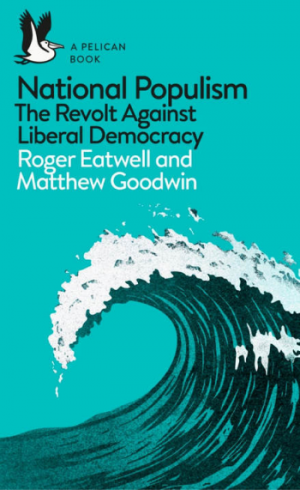
Roger Eatwell (University of Bath)
Matthew Goodwin (University of Kent)
DAY 4 – April 29
10:00 – 12:00 CET
Panel
Speaker
Highlights
Consolidated Lessons Learned & Recommendations for Future Projects & Policy from 6 European ISFP Projects
Dr Chafiaa Djouadi (Université Toulouse – Jean Jaurès, WayOut)
Javier Ruipérez (FUNDEA, ARMOUR)
Dana Dolghin (PATRIR, CHAMPIONs)
Núria Millán Iniesta (NOVACT, RaP)
Javier Torregrosa (UPM, YoungRes)
Julia Rettig (Efus, BRIDGE)
Eszter Karácsony (Efus, BRIDGE)
Charting the Road Ahead
Key Lessons from the 2021 European Conference and Key Priorities as we go Forward
Sylvia Bottarin (DG HOME, European Commission)
Kai Brand Jacobsen (PATRIR)
Meet our Speakers
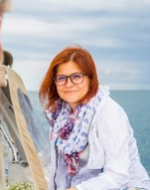
Cristina Ivan, PhD, Researcher
Head of National Centre for Modelling and Simulation in Intelligence/ dr. at Mihai Viteazul National Intelligence Academy
Show More
Bio
Cristina Ivan is a researcher in security and intelligence studies. She also serves as head of the National Institute for Intelligence Studies with the ”Mihai Viteazul” National Intelligence Academy. She has specialized in the cultural study of violence, radicalization and terrorism, propaganda and disinformation, critical intelligence studies etc. Research projects include: A radical model of resilience for young minds – ARMOUR (2019-2021); Semantic Analysis against Foreign Fighters Recruitment Online networks – SAFFRON (2016-2018); Culture and Risk Management in Man-made and Natural Disasters, CARISMAND (2016-2018); and CRESCEnt.
Publications
Hamilton Bean, Peter de Werd & Cristina Ivan (2021) Critical intelligence studies: introduction to the special issue, Intelligence and National Security, DOI: 10.1080/02684527.2021.1893068
Cristina Ivan, Irena Chiru & Rubén Arcos (2021) A whole of society intelligence approach: critical reassessment of the tools and means used to counter information warfare in the digital age, Intelligence and National Security, DOI: 10.1080/02684527.2021.1893072
Internet use and violent extremism: A cyber-VERA risk assessment protocol DE Pressman, C Ivan
Violent Extremism: Breakthroughs in Research and Practice, 43-61
Contact
https://www.linkedin.com/in/cristina-ivan-092500b
https://www.tandfonline.com/toc/fint20/current
Conference
Education: Building community resilience through educational approaches (Day 3 workshop)
Project member of:
A radical model of resilience for young minds – ARMOUR
Show less
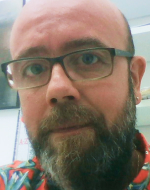
Javier Ruipérez
Director of Research and Projects at The Euro-Arab Foundation (FUNDEA)
Show More
Bio
Javier Ruipérez is Projects and Research Manager at the Euro-Arab Foundation for Higher Studies where he has been working for the last 12 years. With an extensive experience in research and innovation in different projects in the fields of security, education and social intervention. Javier is Engineer in Naval Architecture by the Polytechnic University of Madrid, and holds two Master Degrees inSustainability and Corporate Responsibility (UNED) and Management of Public Policies of Cooperation and Development by the University of Granada
Publications
Ruipérez Canales, Javier (2019): “Terrorism financing and the crime-terror relationships as a challenge for security in Europe” in Organized Crime and Terrorist Networks Routeldge, London;
Ruipérez Canales, Javier (2018) : “Social initiatives and media activism promotion” in Building Digital Social Sciencies and Humanities. Universidad de Granada y Downhill Publishing (NY)
Contact
Conference
Education: Building community resilience through educational approaches (Day 3 / April 28)
Highlights – Consolidated Lessons Learned & Recommendations for Future Projects & Policy from 6 European ISFP Projects (DAY 4 / April 29)
Project member of:
A radical model of resilience for young minds – ARMOUR
Show less
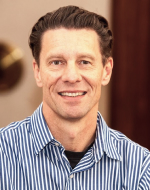
Harald Weilnböck (Ph.D)
Scientific Lead at Cultures Interactive
Show More
Bio
Harald Weilnböck (Ph.D) works both as practitioner and as researcher of good practice methods in prevention and rehabilitation in school and prison settings, focusing on right-wing extremism. He studied and worked in the US, France, Switzerland and Germany and received his Ph.D. at UCLA (Los Angeles) and his professorial degree in Leipzig. Harald also completed training in group dynamic psychotherapy. In 2005 he co-founded the NGO Cultures Interactive which, today, is part of the national PVE program. Since 2010 Harald has helped building up the EU’s ‘Radicalisation Awareness Network’ (RAN) and conducted numerous EU and national projects – currently, inter alia, the “Exit Europe” and the “CEE Prevent Net” project on “Preventing Intolerance and Group Hatred in Central and Eastern Europe”.
Publications
Do we really need “counter narratives”? And what would that be anyway? – The narrative approach to audio-visual media in deradicalisation and prevention of violent extremism and hate crime. Harald Weilnböck
Contact
Show less
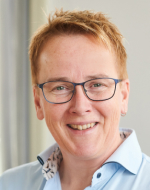
Drs. C. (Carola) Onderdelinden
Research Fellow at University of Groningen, The Netherlands
Show More
Bio
After serving as a police officer Carola Onderdelinden was a lecturer and researcher Public Safety and Security at a University of Applied Sciences, teaching criminology and sociology. She then participated in several projects with STeP, the research group Security Technology and e-Privacy which is part of the Law Faculty of the University of Groningen.
Publications
Nemeth, A., Onderdelinden, C. & Rodenhuis, W. (2012). Veiligheid en overlast bij de Cityflat Almelo. Enschede: Saxion University of Applied Sciences.
Korthals Altes, H.J., Onderdelinden, C.; Rodenhuis, W. (2013). Dok Zuid: Leefbaar, Veilig en Aantrekkelijk. Enschede: Saxion University of Applied Sciences.
Contact
www.firstlinepractitioners.com
Conference
Tools for building individual resilience against polarization and (violent) extremism
Project member of:
A radical model of resilience for young minds – ARMOUR
Show less

Patricia Andrews Fearon
PhD candidate, Gates Cambridge Scholar in the Department of Psychology at the University of Cambridge and a Guest External Expert of the BRIDGE project
Show More
Bio
Patricia Andrews Fearon is a PhD candidate, Gates Cambridge Scholar in the Department of Psychology at the University of Cambridge and a Guest Expert of the EU co-funded BRIDGE project, led by Efus. Her research, as part of the Rebuilding Macroeconomics project funded by the ESRC, examines the ways in which implicit game theories, such as zero-sum thinking, underpins interpersonal and intergroup hostility, inhibits trust and cooperation, and erodes democratic and economic flourishing. In the areas of intervention science and applied research, her work has included polarisation, radicalization and extremism among populations in the UK, Balkans, EU, Pakistan and USA.
Project member of:
External expert of the BRIDGE project
Show less
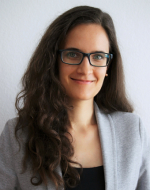
Dr. Melina Breitegger
Researcher and Project Manager at SYNYO GmbH
Show More
Bio
Dr. Melina Breitegger is a Researcher and Project Manager at SYNYO GmbH, where she is involved in the management and implementation of social science research projects. She holds a PhD in Political Science from Stellenbosch University and has completed her studies in Political Science, Social Anthropology and Communication Science at the University of Vienna. Ms Breitegger worked as a researcher on EU-funded projects in the fields of international relations and science and technology studies. Her research on democracy promotion in the Global South and on EU policies on emerging information and communication technologies was published in academic journals.
Conference
How can we ensure sustainability, availability and accessibility? The multilingual www.firstlinepractitioners.com platform (CHAMPIONS and ARMOUR) (DAY 3)
Show less
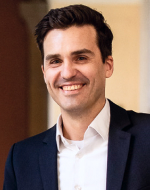
Dr. Florian Huber
Researcher and Project Manager at SYNYO GmbH
Show More
Bio
Dr. Florian Huber is a Researcher and Project Manager at SYNYO GmbH. He has been coordinating several EU-H2020-projects as well as national KIRAS-projects, and he has been representing SYNYO in further European H2020- and ISFP-projects. He holds a PhD in Sociology from the University of Vienna and has experience in research on migration and social inequality. Before joining SYNYO, he had a University-Assistant position at the Department of Sociology at the University of Vienna. Dr. Huber has published books as well as several articles. He has presented his work at international conferences and at several other occasions. In 2012, he received the Austrian Theodor-Körner Award for his PhD-thesis, and in 2014 he was awarded for Innovative Cultural Work in Neighbourhoods by the Austrian City of Linz.
Conference
How can we ensure sustainability, availability and accessibility? The multilingual www.firstlinepractitioners.com platform (CHAMPIONS and ARMOUR) (DAY 3)
Show less
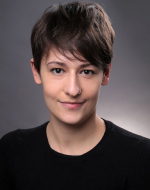
Sylvia Weiß
Project Coordinator CHAMPIONs and Senior Project manager Call of Prev.
Show More
Bio
Since 2019, Sylvia Weiß (M.A. “Migration and Diversity”) is working for cultures interactive e.V. as project coordinator / project manager. Her expertise lies in the field of prevention of right-wing extremism, civic education, gender-reflective work and systemic counselling.
Conference
Engaging Youth I: Combining game-based learning and prevention work on social cohesion and equality (DAY 2)
Project member of:
CHAMPIONs
Show less

Christian Kirschner
Senior specialist for civic education at cultures interactive e.V. and Executive Producer at Call of Prev
Show More
Bio
Christian Kirschner, senior specialist for civic education at cultures interactive e.V. and Executive Producer at Call of Prev, studied science of education, sociology and political science. He has been working in civic education for 15 years with a focus on topics like inequality, digitalization, product-oriented educational work and game-based learning. His passion is the development of new formats and methods with and about games and media.
Conference
Engaging Youth I: Combining game-based learning and prevention work on social cohesion and equality (DAY 2)
Show less
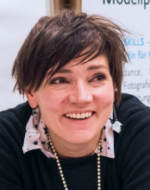
Marie Jäger
Show More
Bio
Marie Jäger studied Islamic studies, Politics and Philosophy. She is working for Cultures Interactive since 2011, focusing on gender reflective work, anti-muslim racism an islamic extremism. Furthermore, she developed youth culture based civic education methods for several projects.
Conference
Engaging Youth I: Combining game-based learning and prevention work on social cohesion and equality (DAY 2)
Show less
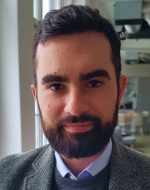
Francesco Perconti
Program Manager – Youth Engagement Program at TechSoup Europe
Show More
Bio
Francesco holds a degree in International Cooperation and Economic Development and he has over 10 years’ experience in project management in the NGO sector. He firstly focused on local development in his homeland, Sicily, and then started to travel to work with several international organisations to increase his competencies and broaden his perspectives. In 2016 he started focusing on Social Innovation projects and shortly after launched an app providing services to NGOs. In 2020 he joined TechSoup and applied his knowledge to manage projects tackling radicalisation and extremism and raise awareness in European youth, engaging them in activities carried out through the use of technology.
Links
Project member of
Game Changer – Radical Awareness Game Engagement
Conference
Innovations Tackling Extremism and Radicalisation through ICT – Lessons, Insights, Challenges & The Road Ahead (DAY 2)
Show less
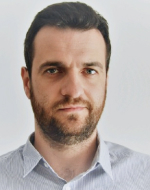
George Bara
Research Consultant at Zetta Cloud
Show More
Bio
George Bara is an applied Artificial Intelligence expert with over 10 years experience in the field. His expertise is focused on Natural Language Processing (Machine Translation, Text Analytics, Speech to Text) and AI algorithms for fake news identification and analysis.
Organization
Zetta Cloud is an Artificial Intelligence startup based in Romania, specialized in the development of software solutions for deep understanding of digital content. Zetta Cloud offers state-of-the-art multilingual Natural Language Processing solutions and is the creator of TrustServista, the world’s first online platform for automated detection and analysis of fake news.
Publications
“Building a Dynamic Corpus of Fake News Using Commercially Available Machine Translation and NLP Software (upcoming, May 2021)”. 2021 IEEE Conference on Cognitive and Computational Aspects of Situation Management (CogSIMA) – Focus Session
“Fake or Fact? Theoretical and Practical Aspects of Fake News” (Information Quality in Information Fusion and Decision Making), April 2019. Editors: Bossé, Éloi, Rogova, Galina (Eds.). Springer-Verlag Scientific Publishing House. https://www.springerprofessional.de/en/fake-or-fact-theoretical-and-practical-aspects-of-fake-news/16600900
“White-paper: Automated Approaches to Digital Content Verification”, Apr 1 2018 – https://www.trustservista.com/2018/04/white-paper-automated-approaches-to-digital-content-verification/
Links
https://onebravething.eu/brave-web-service/
Conference
Innovations Tackling Extremism and Radicalisation through ICT – Lessons, Insights, Challenges & The Road Ahead (DAY 2)
Show less
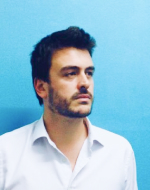
Luca Gervasoni Vila
Director of NOVACT
Show More
Bio
Luca Gervasoni Vila is the director of the human rights organization NOVACT – International Institute for Nonviolent Action, the president of the LaFede.cat, the federation of NGOs in Catalunya, and a lecturer on Conflictology at the Open University of Catalonia. He is one of the promoters of the Observatory for the Prevention of Violent Extremisms, a platform of more than 180 civil society organizations in the Euro-Mediterranean region that promotes a response to violent extremism from a human rights perspective
He studied Political Sciences and he has worked closely with the most influential and well-known human rights organizations in Maghreb, Mashrek and Europe to promote social transformation projects through nonviolence.
He is a member of the European project Rhizome Against Polarization.
Conference
Meeting the Challenges of Extremism in Europe Today: Lessons of the Last Decade, Opportunities to Intervene & The Road Ahead (DAY 1)
Show less
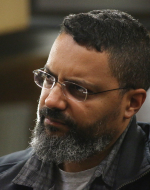
Moussa Al-Hassan Diaw
Researcher and founder of the NGO DERAD
Show More
Bio
Moussa Al-Hassan Diaw is a researcher and founder of the NGO DERAD, which is part of the Radicalization Awareness Network of the European Commission. He cooperates with the Ministry of Justice in Austria in the field of prevention and intervention of extremism in prisons. He also coordinates the program on religious and political extremism at the Centre for Islamic Theology (University Munster) and has been a lecturer at the University of Education Linz and the University Osnabruck, where he has also coordinated an Imam training.
He is a member of the NGO EMJD where he works in the area of Jewish-Muslim dialogue. Moreover, he has held advisory positions and lectured on counter radicalization and social cohesion in several institutions, like the Austrian Armed Forces or the German Police University, but also in international organizations, like UNODC or OSCE as well as think tanks, like the Chatham House and the Institut Français des Relations Internationales. Diaw is also a prolific academic writer with many publications on religious and political extremism, migration, and religion.
Conference
European Panel I (DAY 1)
Understanding the Challenges in Europe Today: The Scope and Dynamics of Radicalisation and Extremism in Europe
Show less

Elisabeth Nagy, BEd
Education and project officer at Südwind
Show More
Bio
Elisabeth Nagy studied environmental pedagogy and is a trainer in social skills, group dynamics, and game-based learning, as well in the context of nature experiences. She has several years of experience in leading groups and teambuilding-processes with students at all ages. She currently works for Südwind as project manager of the “Rhizome against Polarisation” Project in Austria.
Links
https://www.suedwind.at/bilden/jugendarbeit/projekte/rhizome-against-polarisation/
Project Member of:
Rhizome against polarization
Conference
Engaging Youth II: Youth at the Front Lines of Challenging Radicalisation, Hate and Extremism and Building Inclusive Communities (Day 3)
Show less
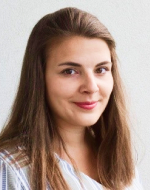
DSPin Elena Kundrat MA
Education and project officer at Südwind
Show More
Bio
Elena Kundrat studied social work and educational sciences. She has several years of experience in the social sector, including working as a social pedagogue in an austrian prison and as a social worker in a german refugee accommodation. She currently teaches at a college for social pedagogy and works as an education and project officer at Südwind, where she leads the project “Hatebusters – youth against hate” for the prevention of hate on the net.
Links
https://hatebusters.erasmus.site/
https://www.suedwind.at/bilden/jugendarbeit/projekte/hatebusters/
Conference
Engaging Youth II: Youth at the Front Lines of Challenging Radicalisation, Hate and Extremism and Building Inclusive Communities (Day 3)
Show less
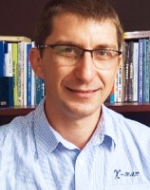
Valentin Nicula
Head of National Centre for Modelling and Simulation in Intelligence/ dr. at “Mihai Viteazul” National Intelligence Academy
Show More
Bio
Dr. Nicula is a researcher of the “Mihai Viteazul” National Intelligence Academy with over 10 years of experience in the field, currently coordinating the National Centre for Modelling and Simulation in Intelligence. Dr. Nicula has published over 20 articles and book chapters in the security and intelligence studies domain, addressing risk analysis, intelligence analysis methods and strategic communication. He has also participated in numerous international conferences and is a member of the editorial staff of the Romanian Intelligence Studies Review.
Publications
Chapter Information Technology Systems and Community Policing in Changing Communities, Changing Policing, Jeanne Pia Mifsud Bonnici, Joseph Cannataci (eds.), NVW Viena, 2018 ISBN 978-3-7083-1215-6 (co-author)
Project Member of:
A radical model of resilience for young minds – ARMOUR
Conference
Education II: Building community resilience through educational approaches (Day 3)
Show less
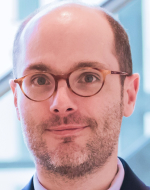
Mathieu Orsi
Show More
Bio
Mathieu Orsi has been working as a policy officer in DG Home Unit D3 in charge of prevention of radicalisation since 2019. Previously, he was in charge of prevention of radicalisation for Paris area (France)
Conference
Workshop No.7
Getting Better at Getting Better: Evaluation, Learning Lessons and Improving Policy and Practice in the EU (Day 3)
Show less
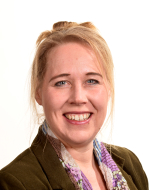
Prof. Dr. Beate Küpper
Social Psychologist, Professor for Social Work in Group and Conflict situations at University of Applied Science Niederrhein
Show More
Bio
Prof. Dr. Beate Küpper is a Social Psychologist and Professor for Social Work in Group and Conflict situations at the University of Applied Science Niederrhein.
Her major topics are: Group-focused Enmity and Right-wing Populismus, Diversity and Integration with focus on the Transfer between Science and Practice.
Conference
European Panel I (Day 1)
Understanding the Challenges in Europe Today: The Scope and Dynamics of Radicalisation and Extremism in Europe
Show less
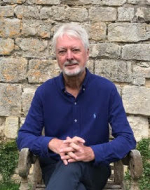
Roger Eatwell
Emeritus Professor of Comparative Politics at the University of Bath
Show More
Bio
Roger Eatwell is Emeritus Professor of Comparative Politics at the University of Bath. He has published extensively, especially on fascism, populism and related movements and leaders. Recent publications include (with Matthew Goodwin), The New Extreme Right Challenge in Britain (Routledge, 2010) and National Populism: the Revolt against Liberal Democracy (Pelican, 2018), which has been translated into several languages, including Greek, Polish, Portuguese and Spanish and was chosen as a 2018 Sunday Times Book of the Year. Recent sole-authored publications include chapters in the the Oxford Handbook of the History of Nationalism, Oxford Handbook of Political Ideologies, and the Oxford Handbook of the Radical Right.
In 1999 he co-founded with Cas Mudde the European Consortium of Political Science Standing Group on Extremism and Democracy, and in the same year co-founded the Routledge book series by the same name, co-editing it with Cas Mudde and then Matthew Goodwin for 20 years (on the continuing series see https://www.routledge.com/Extremism-and-Democracy/book-series/ED?gclid=Cj0KCQjw9_mDBhCGARIsAN3PaFP1jA-WtHOHLIt52iMBwn0WpPNakWlp8pwbz8nLWoVw8owL0l2b0C0aAswQEALw_wcB). He has been a frequent speaker at academic and other meetings within and outside Britain (poster attached for the main cultural centre in Barcelona).
Conference
Special Session: State of Extremism and Populism Today II (DAY 3)
Show less
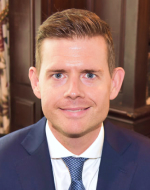
Matthew Goodwin
Professor of Politics and International Relations at the University of Kent
Show More
Bio
Matthew Goodwin is an academic, bestseller writer and speaker
Together with Roger Eatwell he authored National Populism: The Revolt Against Liberal Democracy (Penguin, 2015), an exploration of the causes and long-term conditions that triggered the (new) rise of national populism, that seeks to challenge some of the established views on such contestations of liberal democracy.
Conference
Special Session: State of Extremism and Populism Today II (DAY 3)
Show less

Rositsa Dzhekova
Director at the Center for the Study of Democracy
Show More
Bio
Rositsa heads the Security Program of the Center for the Study of Democracy and manages its research and policy development activities in the area of EU criminal justice, security and home affairs. Her research interests include radicalisation, violent extremism and crime prevention. Rositsa contributes to the RAN Policy Support network of the European Commission, which supports policy-makers in EU Member States on PVE, strengthening research and analytical capabilities, and strategic communications. She further leads the YouthRightOn initiative, aimed at building resilience among youth towards far-right messaging online through the alternative-narrative campaign Find Another Way.
Links
Conference
Engaging Youth II (DAY 3 / April 28)
Youth at the Front Lines of Challenging Radicalisation, Hate and Extremism and Building Inclusive Communities
Show less
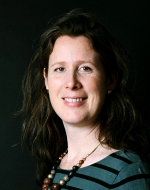
Orlaith King
Senior Project Assistant at the Organisation for Security and Co-operation in Europe
Show More
Bio
Orlaith King is a Senior Project Assistant with the OSCE Transnational Threats Department’s Action against Terrorism Unit, which assists OSCE participating states in increasing their capacities to implement international anti-terrorism commitments.
Since 2016, Orlaith and her colleagues at the Secretariat in Vienna and OSCE field operations have worked with a wide range of stakeholders in the design and implementation of the OSCE flagship initiative Leaders against Intolerance and Violent Extremism (LIVE).
Conference
Engaging Youth II (DAY 3 / April 28)
Youth at the Front Lines of Challenging Radicalisation, Hate and Extremism and Building Inclusive Communities
Show less

Aleksandra Sawa
Expert and Youth Worker at the Institute of Social Safety, Poland
Show More
Bio
Aleksandra Sawa – is an expert and youth worker, involved in the youth sector for almost 10 years. She coordinated Do One Brave Thing in Poland. Particularly interested in increasing young people’s engagement in decision making processes, she was recognised for her work on outreach and inclusion in EU Youth Dialogue and awarded for her approach to involving youth in decision making in schools at the Global Youth Trends Forum in Taipei. Former Board Member of the European Youth Parliament Poland (2016) and Vice President of the Polish National Youth Council (2019-21). Member of the Radicalisation Awareness Network RAN Young Platform.
Links
Conference
Engaging Youth II (DAY 3 / April 28)
Youth at the Front Lines of Challenging Radicalisation, Hate and Extremism and Building Inclusive Communities
Show less
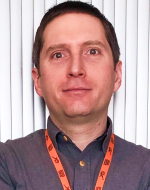
Eric Poinsot
P/CVE Coordinator for the city and Eurometropolis of Strasbourg
Show More
Bio
Eric Poinsot is a P/CVE Coordinator for the city and Eurometropolis of Strasbourg. He is a member of the RAN Local working group and the RAN Expert Pool. He is also a certified trainer. He is in charge of the victims support system, which was activated after the attack on December 11th, 2018 in Strasbourg. He holds an MD in Political science from the University of Strasbourg and also studied in Oxford and Leeds, UK. He has held various positions within the City of Strasbourg.
Conference
City-Based Approaches I: (DAY 2 / April 27)
Strengthening Coordinated Response & Prevention – Lessons from City-Based Multi-Stakeholder Approaches in Europe
Show less

Dr. Marzena Kordaczuk-Wąs
Senior Training Officer at European Union Agency for Law Enforcement Training (CEPOL), Project Coordinator INDEED
Show More
Bio
Dr. Marzena Kordaczuk-Wąs – PhD in social sciences, a graduate of the University of Wroclaw specialising in sociology of security and social activities to prevent crime and other negative social phenomena. For eighteen years she has served in the Polish police, coordinating issues related to crime prevention, with particular emphasis on the prevention of radicalisation (crime prevention by community policing). Currently, she works at the European Union Agency for Law Enforcement Training (CEPOL), actively cooperates with the Polish Platform for Homeland Security as an expert on radicalisation prevention, and acts as the Leader of RAN POL Working Group at the Radicalisation Awareness Network and member of the Steering Committee of RAN COE of the Radicalisation Awareness Network – Centre of Excellence (RAN-COE) upon selection by the European Commission.
Marzena is also an author and evaluator of preventive measures such as long term comprehensive preventive programmes, short term preventive actions as well as ad hoc interventions aimed in the prevention of security threats. Coordinator of INDEED project related to the ‘Strengthening a comprehensive approach to preventing and counteracting radicalisation based on a universal evidence-based model for evaluation of radicalisation prevention and mitigation’
Conference
Getting Better at Getting Better: (DAY 3 / April 28)
Evaluation, Learning Lessons and Improving Policy and Practice in the EU
Show less
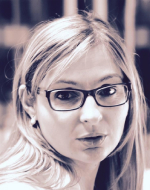
Sylvia Bottarin
Policy officer in the European Commission (Directorate for Home Affairs and Migration)
Show More
Bio
Since 2016, Sylvia Bottarin is working as policy officer in the European Commission (Directorate for Home Affairs and Migration, Unit „Prevention of Radicalisation“). She is responsible for the overall coordination of prevent actions. She is also managing and supervising policy support activities addressed to Member States and is co-responsible for the Radicalisation Awareness Network (RAN). Sylvia has an economic (MBA in marketing and strategy) and communications background and has worked extensively in the private sector, mainly as operations manager and head operations, before joining the European Commission.
Conference
Preventing and Countering Violent Radicalisation in Europe – Vision & Policy Priorities from the European Commission (DAY 1 / April 26)
Show less
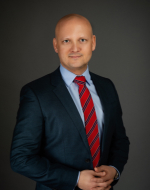
Kai Frithjof Brand-Jacobsen
President, Romanian Peace Institute (PATRIR); Director, Department of Peace Operations (DPO)
Show More
Bio
Kai Frithjof Brand-Jacobsen is regarded as one of the leading pioneers, innovators and practitioners in the field of peacebuilding, security and addressing challenging and complex conflicts and crisis in the world today. For more than 20 years he has worked across all continents and many of the most challenging war zones and crisis situations at the invitation of the United Nations, governments, international agencies and organizations, and local communities affected by conflict and war. He is currently Senior Research on PARTICIPATION examining the dynamics, drivers and impact of extremism in Europe today, and the upcoming INDEED Project focusing on improving evaluation in P/CVE. In 2016 he headed the UN-supported Nineveh Paths to Social Cohesion, Coexistence and Peace project in Nineveh, Iraq-KRG, one of the areas worst affected by the ongoing war with ISIS.
He has since led engagements to support sub-national mediation and peace processes in Libya, improving early warning and integrated peacebuilding and prevention in Nigeria, and headed a unique engagement by UNAMID to support the government of Sudan on stabilization, peacebuilding and recovery in Darfur. He is a practitioner with extensive experience in mediation and facilitation of peace processes and working on the ground to prevent violent conflicts, end wars, and support reconciliation and healing after violence. In 2019 he was awarded the Mahatma Gandhi – Martin Luther King Jr. – Ikeda Lifetime Achievement Award for extraordinary contributions to humanity by Martin Luther King Jr.’s Alma Mater, Morehouse College. His work is one of the subjects of the recent documentary movie In Pursuit of Peace (https://vimeo.com/150351138).
Conference
European Panel 2: Meeting the Challenges of Extremism in Europe Today (DAY 1 / April 26)
WS3: City-Based Approaches I (DAY 2 / April 27)
Show less
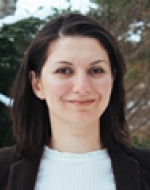
Ola Saleh
Peacebuilding and conflict sensitivity consultant and advisor
Show More
Bio
Ola Saleh is a peacebuilding and conflict sensitivity consultant and advisor. She is a creative problem solver who started her journey as a feminist advocate in 2005. Her professional background is grounded in social movements, humanitarian, and development cooperation contexts in the field and head office. She holds a Master’s degree in Conflictology from the Open University of Catalonia, Spain.
Her experience ranges from supporting women’s participation in political and peacebuilding processes, enhancing multi-track approaches, to gender sensitive conflict analysis, developing gender responsive peacebuilding strategies, and practice informed research.
Ola is a recognised security expert. She is a member of the EU commission’s Radicalisation Awareness Network expert pool on preventing and countering violent extremism. Her focus is the gendered aspects of violent extremism and transformative approaches to prevention, disengagement and reintegration.
Selected Publications
Authored: Female Radicalised Offenders in Prison and Probation: Lessons for the Future (forthcoming), The EU commission, The Radicalization Awareness Network, 2021.
Co-authored: The Missing Peace, A gender brief on the escalation over Nagorno Karabakh. Kvinna till Kvinna, October 2020.
Co-authored: Shadow resolution on women’s economic rights, leadership, and participation. Kvinna till Kvinna, October 2020.
Co-authored: A Right Not A Gift. Kvinna till Kvinna, May 2020.
Co-authored: Do No Harm, A Gender Guidance Note. CDA Collaborative, March 2018.
Authored: Gender Pragmatism in Extremism, Cultures Interactive, 2015.
Conference
WS4: Gender (DAY 2 / April 27)
Show less

Isabella Pîrlogea
Researcher (PARTICIPATION)
Show More
Bio
Isabella Pîrlogea is a young Romanian researcher, awarded Cum Laude for her LLM into International Humanitarian Law and with a Bachelor’s into International Law and Legal Studies. She has previously worked in armed conflict classification for RULAC with the Geneva Academy of International Humanitarian Law and is a finalist for the worldwide competition Jean Pictet on humanitarian law. Isabella is currently working on the Horizon 2020 ‘PARTICIPATION’ programme with the Romanian Peace Institute, looking into drivers and roots of far-right extremism and radicalisation, with an integrated focus on gender and youth.
Conference
WS4: Gender (DAY 2 / April 27)
Show less
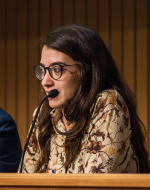
Núria Millán Iniesta
Sociologist, Specialist in the prevention of violent extremism (PVE, NOVACT)
Show More
Bio
Núria Millán Iniesta is a sociologist with a master’s degree in International Relations and Security. She is part of the team at NOVACT – International Institute for Nonviolent Action and is currently the specialist in the prevention of violent extremism (PVE) in the Euro-Mediterranean region. She outlines the strategy of PVE in Tunisia , Jordan, Palestine, Iraq and all of the EU. In addition, she is one of the promoters of the Observatory for the Prevention of Violent Extremism (OPEV), an observatory that brings together 181 entities from more than 23 countries in the Euro-Mediterranean region that responds to violent extremism from a human rights and community perspective. She was part of the driving team of the Plan of Action of the Euro-Mediterranean civil society to prevent all forms of violent extremism: a roadmap in public policy that seeks to give a positive approach to the issue from a human security perspective.
Núria also coordinates the Rhizome Against Polarisation project on the prevention of violent extremism, mainly from the far right, in Spain, Italy and Austria. She has designed community resilience programs for young people against hate speech through art and culture in Barcelona, and organized trainings in the prevention of violent extremism for first line practitioners, such as teachers and staff working in prisons.
In the field of research, she participated in the diagnosis of violent extremism in Catalonia; a participatory research where more than 80 regional actors participated to capture the context of violent extremism and the causes of its emergence. She is also conducting research on hate speech in social networks during the state of emergency through the BIG DATA methodology and analysis with the Universitat Autònoma de Barcelona and the Computer Vision Center.
Conference
European Panel 2 (DAY 1 / April 26)
Highlights – Consolidated Lessons Learned & Recommendations for Future Projects & Policy from 6 European ISFP Projects (DAY 4 / April 29)
Show less
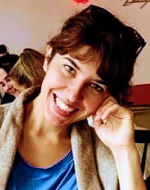
Dana Dolghin
Project Manager (CHAMPIONs)
Show More
Bio
Dana Dolghin is the project manager of the CHAMPIONs project, for PATRIR. She is a historian with a PhD from the University of Amsterdam with a thesis on contestions of liberal democracy in collective memory narratives. She joined PATRIR as a specialist in the rise of the right and Central and Eastern Europe.
Conference
WS no.5 – Tech: Innovations Tackling Extremism and Radicalisation through ICT – Lessons, Insights, Challenges & The Road Ahead (DAY 2 / April 27)
Show less
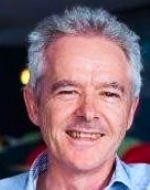
Prof Kevin McDonald
Professor of Sociology at Middlesex University, London
Show More
Bio
Kevin McDonald holds a doctorate from the Ecole des Hautes Etudes en Sciences Sociales (Paris) and is professor of Sociology at Middlesex University, London. His research engages with the new forms of democratic experience and struggle that we encounter in contemporary social movements (Global Movements, Blackwell 2006) as well as emerging anti-democratic movements such as violent extremism (Radicalization, Polity 2018). His recent research on radicalisation explored pathways to violent jihadism among young people in the UK, France and United States.
His current research focuses on two areas. The first explores the agency and subjectivity involved in disengaging from extremism. The second focuses on affective communications and embodied experiences involved in the reassembling of far-right extremism in Europe today. This engages in particular with the ‘word building’ involved in this development, with a focus on digital communications and social media, humour, gamification, conspiracy and the embodied imaginaries at stake in the changing relationship between online and offline extremism.
He is currently involved in PARTICIPATION (Horizon 2020).
Conference
Special Session: State of Extremism and Populism Today I (DAY 2 / April 27)
Show less

Francesco Farinelli
Programme Director at the European Foundation for Democracy
Show More
Bio
Dr Francesco Farinelli is a Programme Director at the European Foundation for Democracy. He is a member of the EU Commission’s Radicalisation Awareness Network (RAN) Expert Pool and a consultant at the study centre ‘NOMOS Centro Studi Parlamentari’. He obtained his PhD in history with a dissertation on the relationship between history and fiction in media narratives relating to terrorist events, in the framework of the joint international programme on “Humanism, Neo-Humanism and Post-Humanism in the Age of Media,” of the University of Bologna (IT) and Brown University (USA). He is the author of essays in the field of terrorism and handbooks aimed at offering practical tools to first-line practitioners for the prevention of radicalisation. His expertise and publications include the study of fake news, propaganda and conspiracy theories in media narratives and their impact on society.
Conference
Special Session: State of Extremism and Populism Today I (DAY 2 / April 27)
Show less
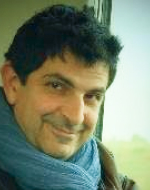
Manuel COMERON
Coordinator at Prevention of Violent Extremism (PVE)
Show More
Bio
Manuel Comeron is a social psychologist, in charge of Prevention of Violent Extremism (PVE) in the City of Liege.
Conference
City-Based Approaches I: (DAY 2 / April 27)
Strengthening Coordinated Response & Prevention – Lessons from City-Based Multi-Stakeholder Approaches in Europe
Show less

Christian Mogensen
Specialist consultant at the Center for Digital Youth Care (Denmark)
Show More
Bio
Christian Mogensen is a specialist consultant with Center for Digital Youth Care (Denmark), with responsibility for gaming, gender & sex, and destructive online behaviour. He’s a renowned public speaker with a reputation for bridging the generational gap between the worlds of 4Chan, 8Kun and Reddit, and those not (yet!) part of neither imageboards, gaming communities or new social media. In 2020 Christian and colleagues published the report ‘The Angry Internet’ , an analysis of the extent of violent misogynists in the Nordics, as well as a psychological insight from qualitative studies with groups of ‘angry men’.
Christian has observed, interviewed and tried to understand the men that deem themselves ‘the involuntary celibate’. He is a master of philosophy and psychology from Aarhus University, but employs just as many memes as statistics; a mix that has been tested in front of The United Nations, the European Parliament, the European Commission and many schools and educational facilities in Denmark and Europe, over the last decade.
Conference
Gender: (DAY 2 / April 27)
A Systematic Examination of Gender and Extremism in Europe Today
Show less
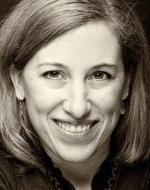
Dr Lisa Schirch
Director of the Social Media, Technology, and Peacebuilding program at the Toda Peace Institute
Show More
Bio
Dr. Lisa Schirch directs the Social Media, Technology, and Peacebuilding program for the Toda Peace Institute. She also co-chairs the Alliance for Peacebuilding working group on Technology and Peacebuilding. A former Fulbright Fellow in East and West Africa, Schirch is the author of eleven books, including most recently Social Media Impacts on Conflict and Democracy: The Tech-tonic Shift (Routledge 2021).
Conference
Special Session: State of Extremism and Populism Today I (DAY 2 / April 27)
Show less
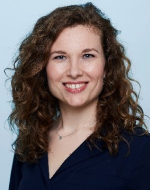
Lieke Wouterse
Consultant at RadarAdvies
Show More
Bio
Lieke Wouterse is a consultant at RadarAdvies and core staff member of the Radicalisation Awareness Network Practitioners team. She oversees and supports the working groups for local authorities (LOCAL) and communications & narratives (C&N) across the EU. Besides these working groups, she has been actively involved to train and support the 20 EU funded projects for the Civil Society Empowerment Programme (CSEP). She has a particular interest for monitoring and evaluation and has been involved in several RAN meetings dedicated to this topic.
Publications
RAN C&N Ex Post Paper (2019). Monitoring & Evaluating counter- and alternative narrative campaigns https://ec.europa.eu/home-affairs/sites/default/files/what-we-do/networks/radicalisation_awareness_network/about-ran/ran-c-and-n/docs/ran_cn_ex_post_evaluating_campaigns_berlin_210219_22_en.pdf
RAN Ex Post Paper (2018). GUIDELINE EVALUATION OF PCVE PROGRAMMES AND INTERVENTIONS. https://ec.europa.eu/home-affairs/sites/default/files/what-we-do/networks/radicalisation_awareness_network/ran-papers/docs/ms_workshops_guidelines_evaluation_of_pcve_programmes_and_interventions_july_2018_en.pdf
Conference
Getting Better at Getting Better: (DAY 3 / April 28)
Evaluation, Learning Lessons and Improving Policy and Practice in the EU
Show less

Naureen Chowdhury Fink
Executive Director at The Soufan Center
Show More
Bio
Naureen Chowdhury Fink is the Executive Director of The Soufan Center. Previously, she served as the Senior Policy Adviser on Counterterrorism and Sanctions at the United Kingdom’s Mission to the United Nations, leading representation and negotiations in the Security Council and General Assembly. Previously, she was a policy specialist with UN Women and the UN Counter-Terrorism Executive Directorate (CTED), with a focus on integrating gender into the full spectrum of counter-terrorism issues.
Before joining the United Nations, she was head of research and analysis for the Global Center on Cooperative Security, leading on the multilateral security portfolio focused on international response to terrorism and violent extremism, armed conflict, and political instability, and the role of international and regional actors. In doing so, she built on earlier work at the International Peace Institute, where she developed the counterterrorism portfolio.
She has developed and implemented CT and CVE projects across the globe, in regions as diverse as West Africa and South Asia, and published widely on counterterrorism, gender, the UN and deradicalization efforts. She has been a regular panelist at high level and expert events and brings to her roles the experiences of living and working in diverse regions and dynamic multicultural environments.
Conference
Special Session: State of Extremism and Populism Today I (DAY 2 / April 27)
Show less
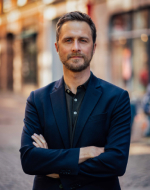
Jeppe Albers
Founder & Executive Director at Nordic Safe Cities
Show More
Bio
Jeppe has led the alliance since its inception in 2016 with the Nordic Council of Ministers. Nordic Safe Cities is a non-profit organization with member cities from Norway, Finland, Denmark, Sweden and Iceland working together to prevent extremist violence and hate and build safe and resilient cities in the Nordics. He has previously been a partner and director at a Copenhagen based social entrepreneur agency and has worked in the Danish Foreign Ministry and the Danish Arts Council. He holds an M.Sc. in Sociology and Political Science from studies at the University of Copenhagen, Sciences Po Paris and Yale University.
Conference
City-Based Approaches I: (DAY 2 / April 27)
Strengthening Coordinated Response & Prevention – Lessons from City-Based Multi-Stakeholder Approaches in Europe
Show less
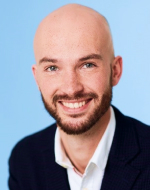
Jordy Krasenberg
Consultant at RadarAdvies, Core Staff Member at RAN
Show More
Bio
Jordy Krasenberg is a consultant of RadarAdvies and a core staff member of the Radicalisation Awareness Network Centre of Excellence. Jordy supports the working groups of practitioners from the youth & education and mental health care sectors across the EU Member States. His role includes both strategic planning and coordination of the working groups, facilitating collaboration, writing of papers, developing E-learnings, and building of the network by ensuring its outreach to different Member States.
Particularly noteworthy is his role as project lead and trainer to support the 20 EU funded projects for the Civil Society Empowerment Programme. Jordy has solid experience in working at the Pan-European level, communicating with policy makers, connecting policy makers, practitioners, academics, social media industry and civil society, analysing and drafting policy briefs on root causes of radicalisation, counter radicalisation, and in the prevention of radicalisation and violent extremism. He has also works on other related areas, including the inclusion and integration of refugees in Dutch society.
Publications
Conference
Getting Better at Getting Better: (DAY 3 / April 28)
Evaluation, Learning Lessons and Improving Policy and Practice in the EU
Show less
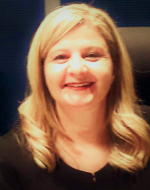
Dr Chafiaa Djouadi
Researcher and Project Manager
Show More
Bio
Doctor in human geography, Chafiaa Djouadi is Researcher and European Projects Manager in prevention of radicalization leading to violence at the EFTS Mixed Research Unit, in the University of Toulouse Jean Jaures, France, in charge of the WayOut project. She is an associate member of the UNESCO chair PREV, Prevention of radicalization and violent extremism, Canada.
Mrs Djouadi is an expert gender, she worked within the UNDP in the MENA zone, on gender equality and women empowerment. She is as well an expert in public policy and sustainable development, she has worked for governments and international organizations to promote the peaceful and violence-free development of Africa. As a member of Femwise, she is Peace Ambassador of the African Union and acts as a mediator in preventive diplomacy and conflict resolution (UN Security Council resolution 1325). Ms. Djouadi is an election observer for several African countries. In this role, she aims to analyze the engagement of women in political life and in the promotion of peace.
Conference
Highlights (DAY 4/ April 29)
Consolidated Lessons Learned & Recommendations for Future Projects & Policy from 6 European ISFP Projects
Show less

Julia Rettig
Programme Manager at the European Forum for Urban Security
Show More
Bio
Julia Rettig works as a Programme Manager at the European Forum for Urban Security and follows the topics of radicalisation and polarisation.
She holds a Master of Arts degree in German Studies, Philosophy and Political Sciences of the Ludwig-Maximilians-Universität Munich.
Until 2019 she worked for Berlin based organisations coordinating federal government programmes designed to facilitate the integration of refugee families or to promote democracy and prevent extremism.
Conference
City-Based Approaches II: (DAY 3 / April 28)
Assessing, Preventing and Mitigating Polarisation (Simultaneous interpretation French)
Highlights (DAY 4/ April 29)
Consolidated Lessons Learned & Recommendations for Future Projects & Policy from 6 European ISFP Projects
Show less

Eszter Karacsony
Programme Manager at the European Forum for Urban Security
Show More
Bio
Eszter Karacsony is responsible for Efus’ relations with the EU institutions, mainly with the European Parliament and the European Commission. She obtained a Master’s degree in “EU International Relations and Diplomacy Studies” at the College of Europe (Bruges Campus). Eszter equally has a Master’s degree in “European Politics and Public Affairs” (Sciences Po Strasbourg) and one in “Contemporary History” (University of Strasbourg).
Regarding her previous professional experience, Eszter worked as a trainee at the European Parliament in Strasbourg and at the Directorate of European Affairs of the National School of Administration (Ecole nationale d’administration). Eszter Karacsony follows the EU co-financed BRIDGE, BSFS and SHINE projects and the work of the Partnership on Security in Public Spaces of the Urban Agenda for the EU.
Conference
City-Based Approaches II: (DAY 3 / April 28)
Assessing, Preventing and Mitigating Polarisation (Simultaneous interpretation French)
Highlights (DAY 4/ April 29)
Consolidated Lessons Learned & Recommendations for Future Projects & Policy from 6 European ISFP Projects
Show less

Victoria Steinek
Researcher, trainer and consultant at the Austrian Federal Ministry of the Interior
Show More
Bio
Victoria Steinek, BA MA, finished her Bachelor’s and Master’s degree in sociology at the University of Vienna and several universities in London, the joint focus of her research and trainings being violent extremism and terrorism, prevention of radicalisation and deradicalisation, international security and social inequality. Since 2018, she is a member of the Austrian Federal Ministry of the Interior, her main responsibilities ranging from providing specialised trainings and analysis to coordinating or contributing to national or EU projects in the PVE/CVE field. She served as the project coordinator of the ISF-P Project “EXIT Europe” which pursued the key objective to develop locally embedded, civil society based exit programmes across various forms of violent extremism in Europe.
Publications
Steinek, Victoria/Zetinigg, Birgit (2020). Islamist and Right-Wing Extremist Propaganda. A literary analysis on the mechanisms and impact of violent extremist narratives online, SIAK Journal − Zeitschrift für Polizeiwissenschaft und polizeiliche Praxis (1), 68-78, Online: https://www.bmi.gv.at/104/Wissenschaft_und_Forschung/SIAK-Journal/SIAK-Journal-Ausgaben/Jahrgang_2020/files/Steinek_1_2020.pdf
Links
Conference
Good Practice in Deradicalisation and Rehabilitation – with an Emphasis on Inter-Agency Cooperation and Confidentiality (DAY 3)
Project Member of
ISF-Project “EXIT Europe”
Show less

Jacopo Bellasio
Senior Analyst at RAND Europe
Show More
Bio
Jacopo Bellasio is a Senior Analyst at RAND Europe where he focuses on defence and security issues. At RAND, Bellasio managed IMPACT Europe, a multi-year pan-European FP7 project that aimed to help policymakers and practitioners ascertain the effectiveness of their counter violent extremism policies and interventions (http://www.impacteurope.eu/). Bellasio conducted also a study for the Research and Documentation Centre of the Dutch Ministry of Justice and Security taking stock of evaluation in the field of counterterrorism and preventing and countering violent extremism.
At RAND he has contributed to a wide array of studies on terrorism and counterterrorism, including studies on the link between social media and radicalisation in sub-Saharan Africa; on the effectiveness of online alternative narratives programmes funded by Australian authorities; on assessing the flow of foreign funding to religious institutions in the Netherlands; and on analysing the nexus between terrorist and criminal activities in the Mediterranean basin and Sahel. Prior to joining RAND, Bellasio worked with a human rights non-governmental organisation in Lebanon and as a research assistant at the University of St Andrews. Bellasio holds an M.Litt. in Middle East and Central Asian security studies from the University of St Andrews and an undergraduate degree in Linguistic and Cultural Mediation from the University of Milan, Italy.
Conference
WS7 – Getting Better at Getting Better: Evaluation, Learning Lessons and Improving Policy and Practice in the EU (DAY 3 / April 28)
Show less

Javier Torregrosa
Researcher and project manager at Universidad Politécnica de Madrid (Spain)
Show More
Bio
Javier Torregrosa is currently a researcher and project manager from Universidad Politécnica de Madrid (Spain). He has a background on psychology, criminology and statistics, and he is currently conducting his PhD in Computer Science. His main research lines are related with extremism and the application of computational techniques to describe and prevent it.
Conference
Highlights – Consolidated Lessons Learned & Recommendations for Future Projects & Policy from 6 European ISFP Projects (DAY 4 / April 29)
Show less
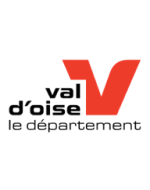
Departmental Council of Val d’Oise (FR)
Presentation will be made by Quentin Degrave, Security Programme Manager at the Departmental Council of Val d’Oise
Show More
Bio
The Departmental Council of Val d’Oise is responsible, in particular, for enacting social action and prevention policies, as well as upholding child protection.
The Department of Val d’Oise is situated to the north-east of the City of Paris. It groups together 184 municipalities and 1.2 million inhabitants, with a rural zone in the west as well as an array of disadvantaged working-class municipalities, notably in the most urbanised south-eastern areas (Sarcelles, Garges, Gonesse, Villiers-le-Bel)
The Departmental Council aimed to address the phenomena of polarisation at the local level via an audit (assessment/diagnostic) with, for example, the analysis of socio-economic data and by interviewing local stakeholders. One issue in particular was highlighted as central concerning polarisation, by all stakeholders interviewed: tensions between young citizens from working-class neighbourhoods and the police.
Project member of:
BRIDGE project partner
Show less
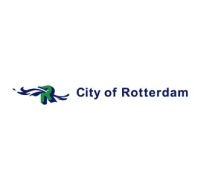
City of Rotterdam (NL)
Presentation will be made by Alia Azzouzi, Policy Advisor to the City of Rotterdam
Show More
Bio
Rotterdam endeavours to be a safe city where everyone feels welcome and at home. In collaboration with the police and the judiciary, the municipality is doing everything in its power to ensure the safety of our city and its inhabitants. Our approach to radicalisation, extremism and polarisation augments the work being done to make our city a safe and engaging place. We seek to counteract (potentially) violent behaviour that is driven by ideology because it can lead to societal upheaval. This violent behaviour also poses a threat to social cohesion and the democratic rule of law. Finally, we want our approach to counteract growing polarisation.
Our approach contains four courses of action and multiple interventions and activities.:
- Depolarisation and Tension Reduction
- Bolstering Resilience against Radicalisation, Extremism and Polarisation
- Disengagement and Deradicalisation
- Promoting expertise
Project member of:
BRIDGE project partner
Show less
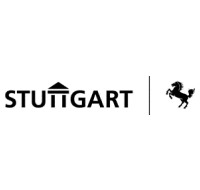
City of Stuttgart (D)
Presentation will be made by Gregor Belgardt, Head of the Crime Prevention Office at the City of Stuttgart
Show More
Bio
Ensuring urban security and strengthening social cohesion has always been a cornerstone of Stuttgart’s policies. In a time of growing societal polarisation and extremism, the city’s municipality decided to address these issues in a new way. As part of EFUS’ BRIDGE project, the municipality developed a multi-stakeholder pilot project called “Respect Guides”. Within this pilot, young volunteers with a variety of backgrounds are educated on conflict resolution and communication strategies and are deployed to the public space, in order to engage in a dialogue and to promote a respectful behaviour. This pilot complements the big existing network of civil society organisations addressing this issue.
Project member of:
BRIDGE project partner
Show less
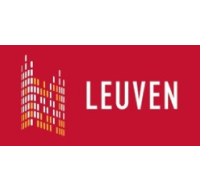
City of Leuven (B)
Presentation will be made by Miran Scheers, Head of Prevention and Safety at the City of Leuven
Show More
Bio
In Leuven, international migration plays an important role in the annual population growth. This trend made the city more diverse in the last ten years, with about 169 nationalities.
Leuven has high levels of social cohesion, diversity and tolerance. The strength of Leuven is that the City tries to counter polarisation and extremism with a profound belief in connections and togetherness. Social cohesion is strengthened by the everyday work of the administration. In Leuven we work very closely with citizens and see them as a partner in the framework of a more global, integrated approach. In case a problem occurs, the City has a swift way to deal with it, for example, based on the above-mentioned integrated approach. The City of Leuven embraces diversity as a force of positive change. The citizens’ care for each other, no matter what their background is.
Project member of:
BRIDGE project partner
Show less


